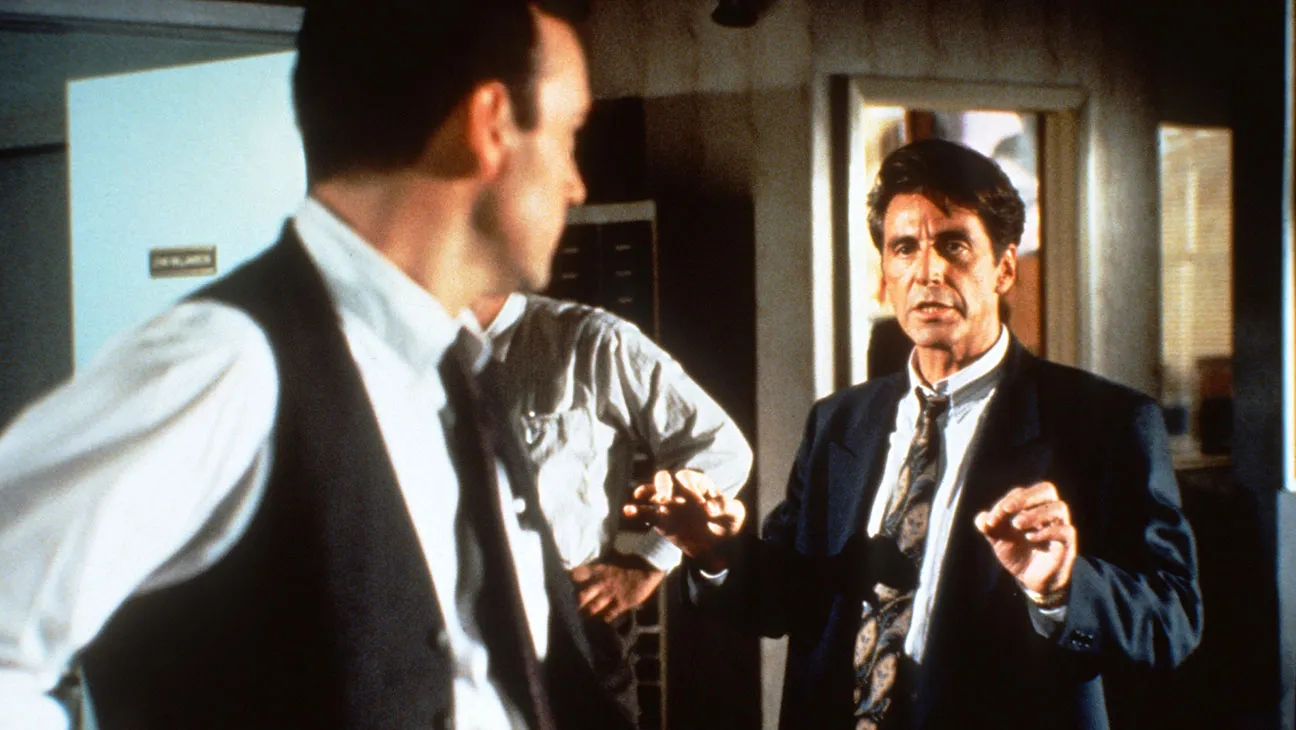Few works of American drama cut as deep or hit as hard as David Mamet’s “Glengarry Glen Ross.” It’s a film that grabs you by the throat from its opening moments and doesn’t let go, driving forward with the relentless, toxic energy of its desperate characters.
At its core, it’s the story of four real estate salesmen and the lengths they’ll go to survive in a cutthroat world, but it’s also so much more – a searing indictment of capitalism, a meditation on masculinity, and a showcase for some of the most electric dialogue ever written.
Mamet’s language in “Glengarry” is like jazz – profane, rhythmic, and precisely crafted while feeling utterly spontaneous. The salesmen speak in a brutal poetry of desperation, their words overlapping and colliding as they fight for their economic lives.
Every conversation is a battle, every interaction loaded with subtext and danger. The characters wield language like weapons, whether it’s Ricky Roma smooth-talking a client or Shelley “The Machine” Levene trying to recapture his glory days with increasingly manic energy.
The salesmen themselves are unforgettable characters who have become American archetypes, brought to life by an extraordinary ensemble cast.
The film adaptation added Alec Baldwin’s brief but Oscar-nominated performance as Blake, a vicious corporate motivator whose “Always Be Closing” monologue distills the entire toxic culture into one blistering scene. Baldwin commands the screen for only seven minutes, but his presence haunts the rest of the film, embodying the ruthless system that created and ultimately destroys these men.
The cultural impact of “Glengarry Glen Ross” cannot be overstated. Its phrases have entered the lexicon, and its clear-eyed examination of sales culture remains painfully relevant decades later. The script picks apart the myth of the American Dream, showing how it can become a nightmare of endless competition and moral compromise.
At the heart of the film is Al Pacino’s masterful performance as Ricky Roma, culminating in his methodical undressing of Kevin Spacey’s office manager Williamson.
In the scene, Roma’s surgical dismantling of Williamson goes beyond mere insults – it’s a calculated destruction of a man’s identity, using words as precisely as a matador uses his sword. Pacino builds the scene with a predator’s patience, starting with quiet disdain and slowly escalating to thunderous contempt, all while Spacey’s Williamson shrinks before him.
When Roma spits “You don’t know what a shot is,” it’s not just an insult, but an existential judgment. The scene showcases Mamet’s dialogue at its finest, with Pacino delivering each line like a boxer landing combinations, systematically breaking down his opponent’s defenses.
What makes “Glengarry” truly great is that it manages to be both a scathing critique and a compelling human drama. Even as we recognize the toxicity of the world these men inhabit, we can’t help but be drawn into their struggles and hopes.
We feel the weight of Levene’s desperation, the seductive power of Roma’s confidence, the creeping fear that haunts them all. In their own ways, the characters of “Glengarry Glen Ross” always were closing.


